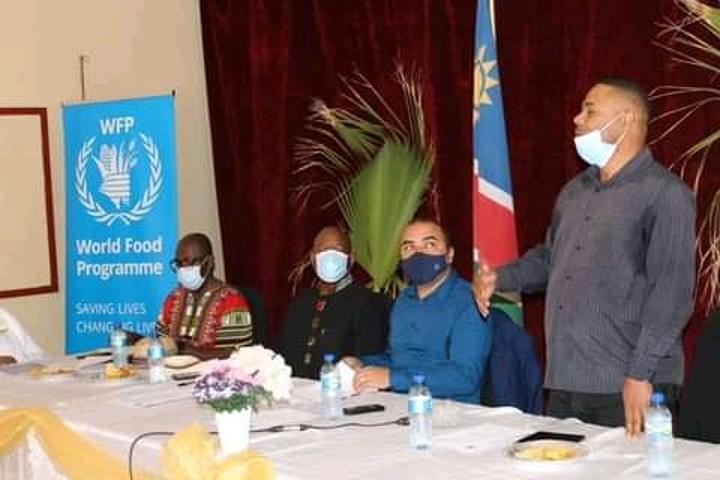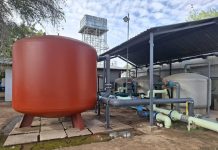Africa-Press – Namibia. THE Hardap Regional Council and the World Food Programme recently signed an agreement at Stampriet aimed at promoting sustainable food systems in the region.
The agreement seeks to address drivers of food and nutrition insecurity, long-term trends in rising hunger, emergency preparedness, market access, and distribution.
Furthermore it aims to create opportunities in livelihoods and build resilience by introducing new strategies and solutions to transform food systems.
Hardap governor Solomon April says there have been significant losses of livelihoods countrywide since the onset of the Covid-19 pandemic.
Due to these losses the government has provided food aid to 744 000 people, he says.
April says the start of the agricultural harvest cycle for farmers coincided with the outbreak of the pandemic, which interupted the production cycle and value chain.
This may increase food prices even more, creating a global crisis that would affect the poor and vulnerable the most, he says.
“Transformation of food systems in Namibia requires new and better solutions at all levels. It also requires strengthened collaboration among the government, lawmakers, researchers, teachers, grassroots farmers, and the private sector,” April says.
Namibia is ranked 70th out of 107 countries on the 2020 Global Hunger Index due to insufficient food production and a reliance on external markets for food.
About 60% of the country’s cereal needs are imported.
The Global Hunger Index suggests that poor households are vulnerable to food-price inflation, while 42% of the population is classified as malnourished.
World Food Programme (WFP) country director George Fedha says the WFP’s response is anchored in the four strategic pillars of rural transformation, prioritising market creation, technology, and finance and insurance provision for smallholder farmers.
Fedha says the response also focuses on developing nutritious diets, child health and teaching food interventions, and advocates for the first 1 000 days of a child’s development.
“The collaboration established under the memorandum of understanding is guided by the above pillars, and provides a concrete foundation for the design and implementation of a sustainable food systems programme,” he says.
The sustainable food systems programme is done in collaboration with the Roots development agricultural project.
The programme will be implemented at the Roots Gymnasium Private School, which has been built at a cost of N$26 million by the Roots development agricultural project.
The school opened its doors last Wednesday.
For More News And Analysis About Namibia Follow Africa-Press






